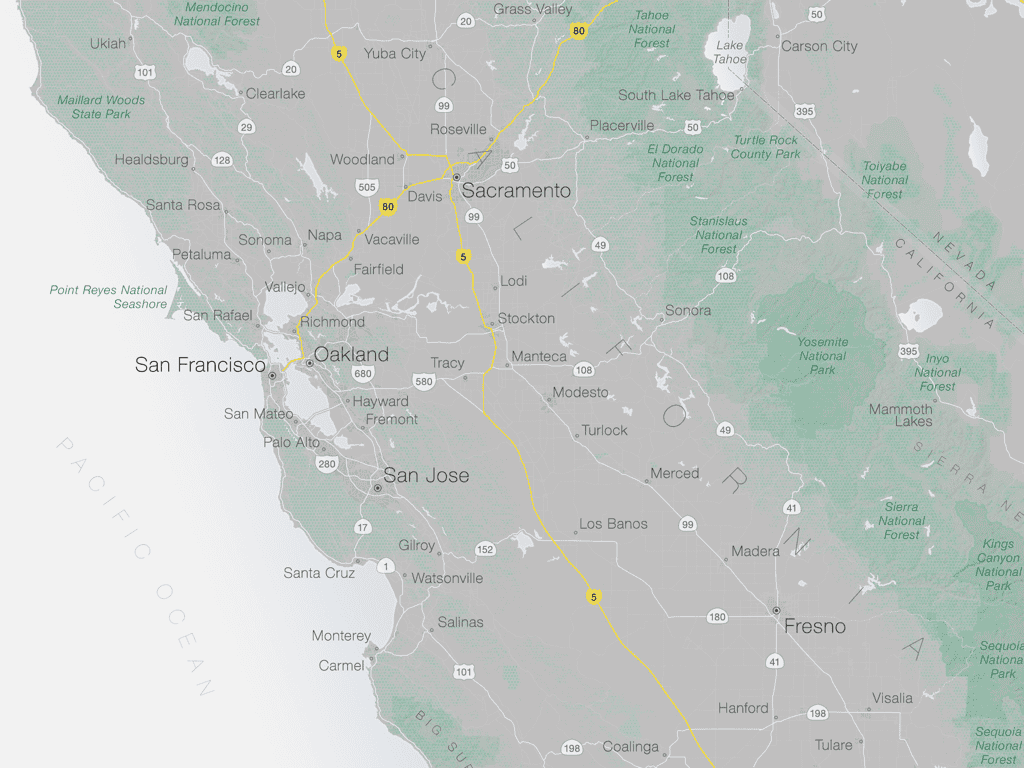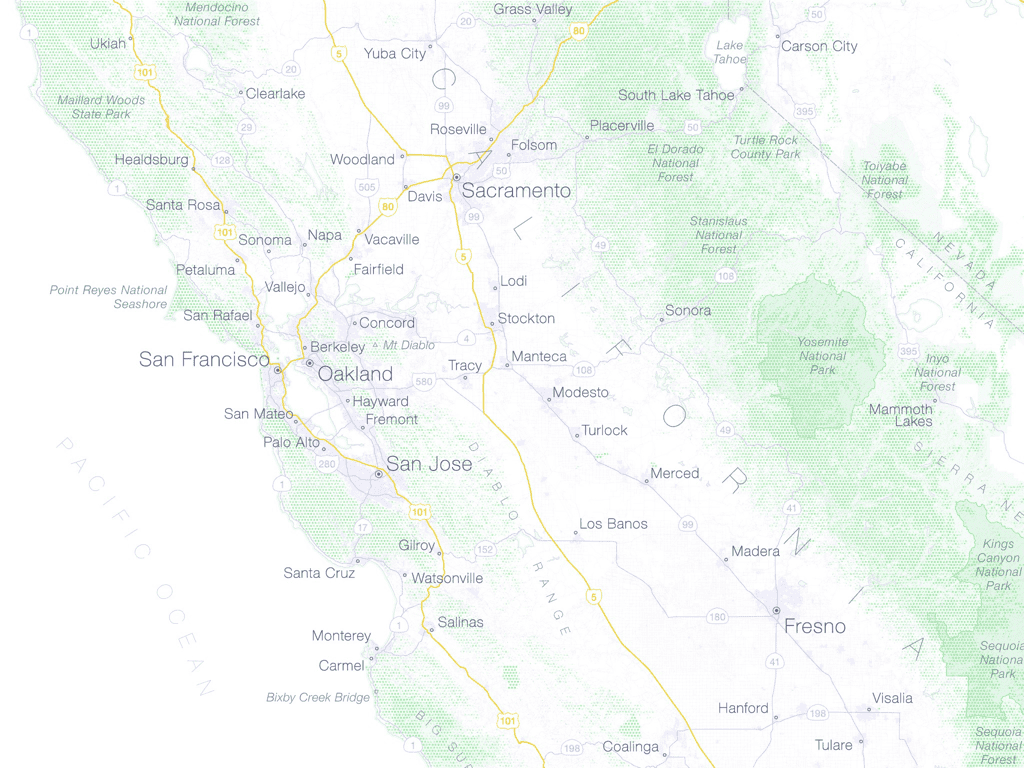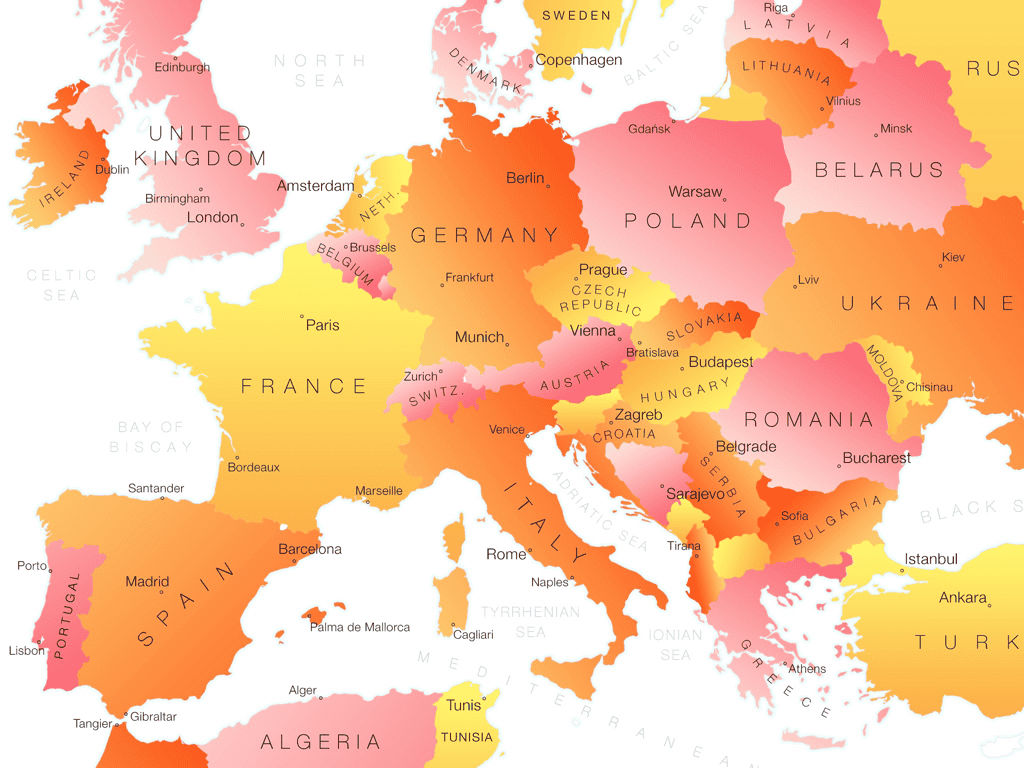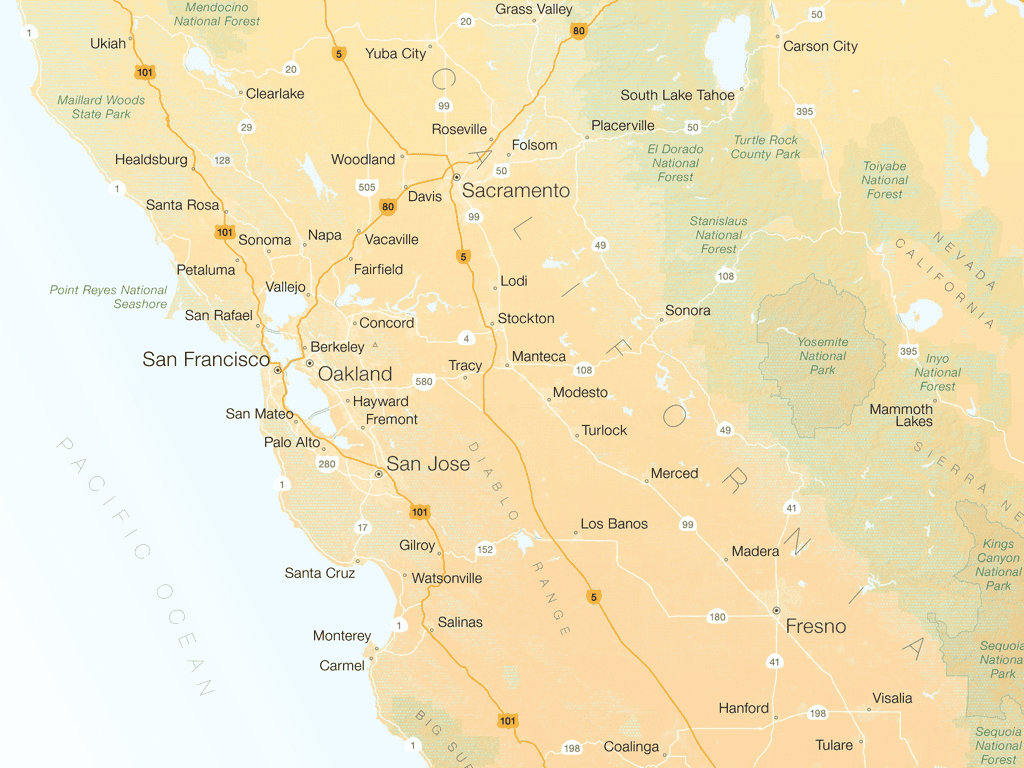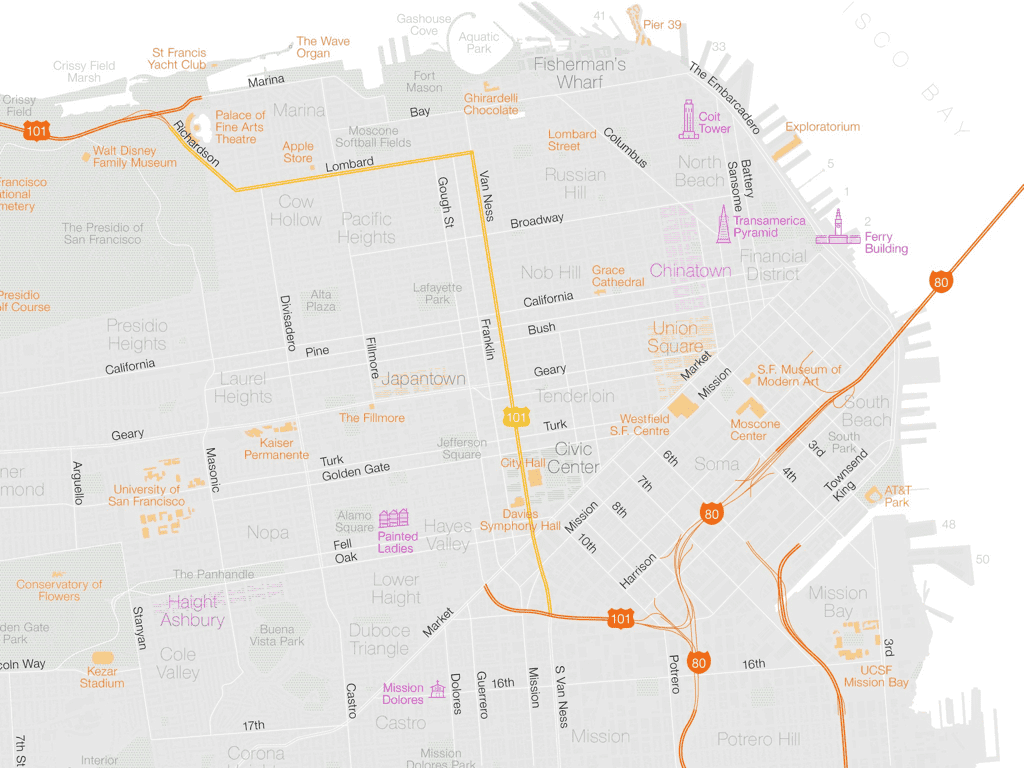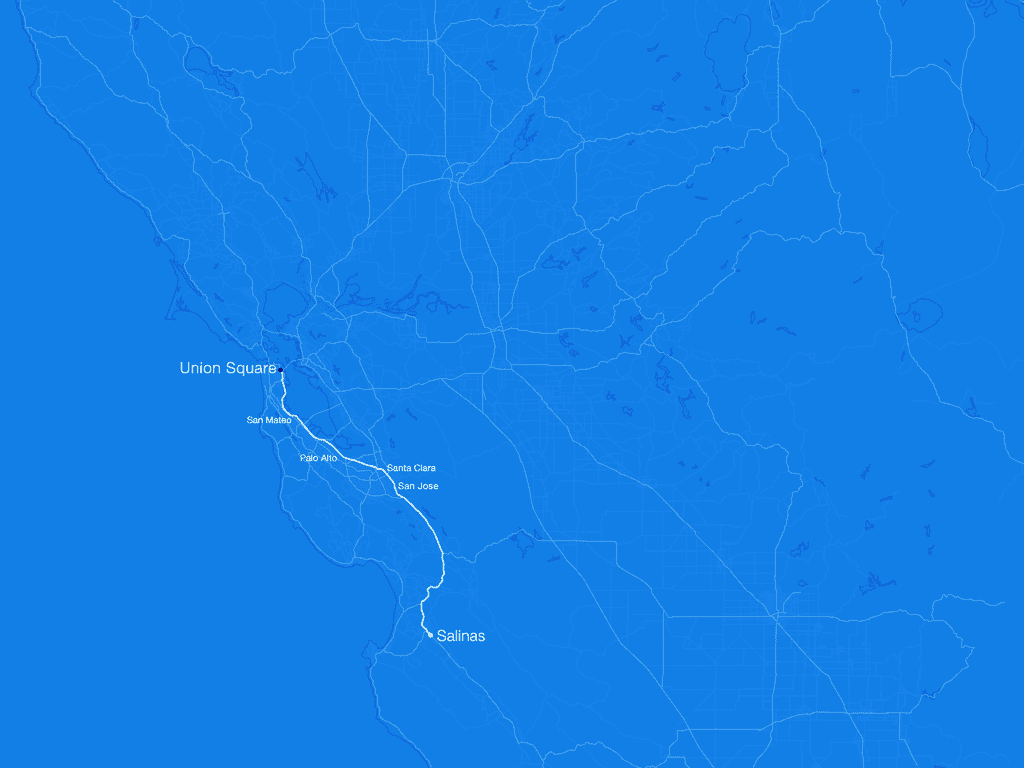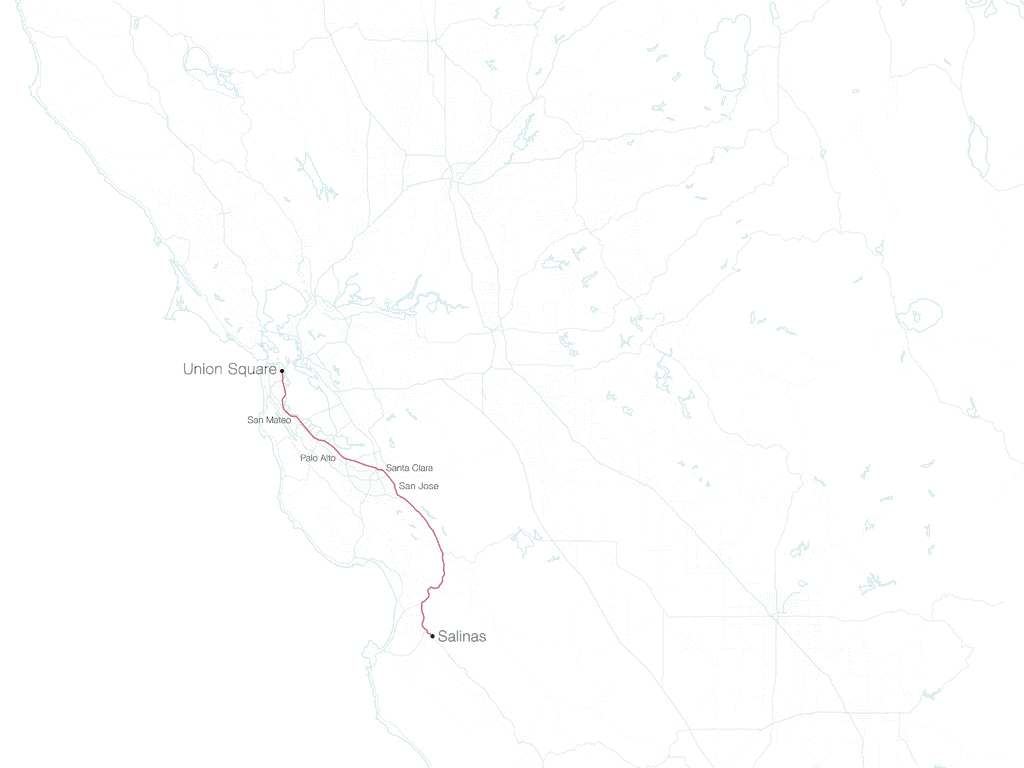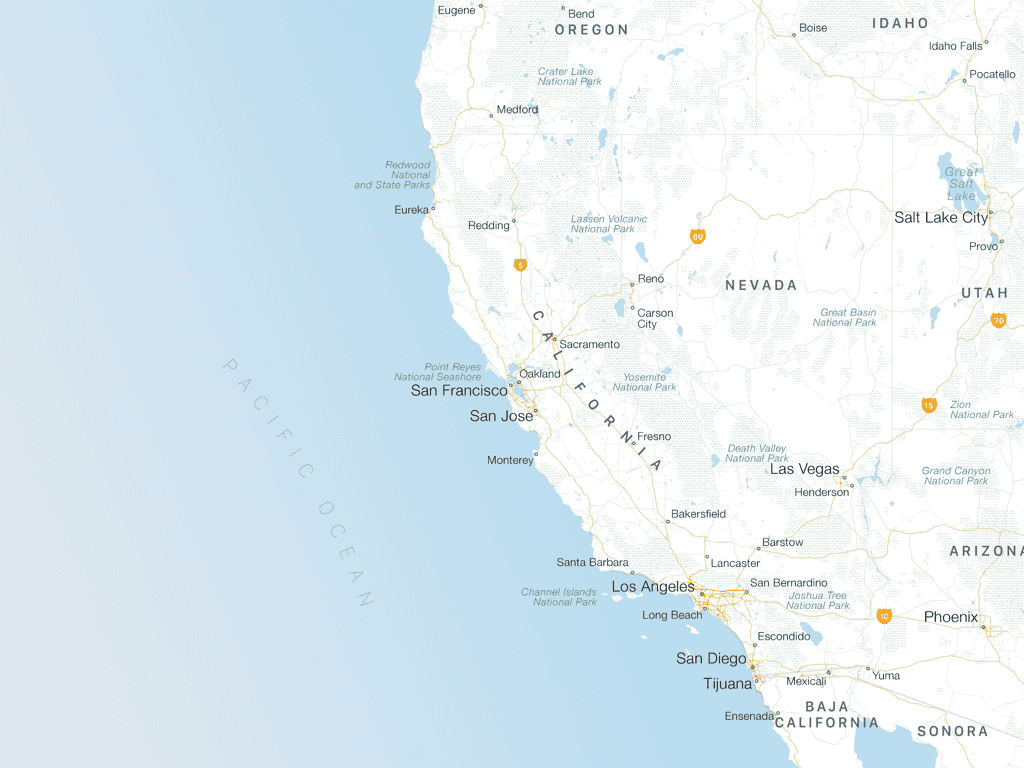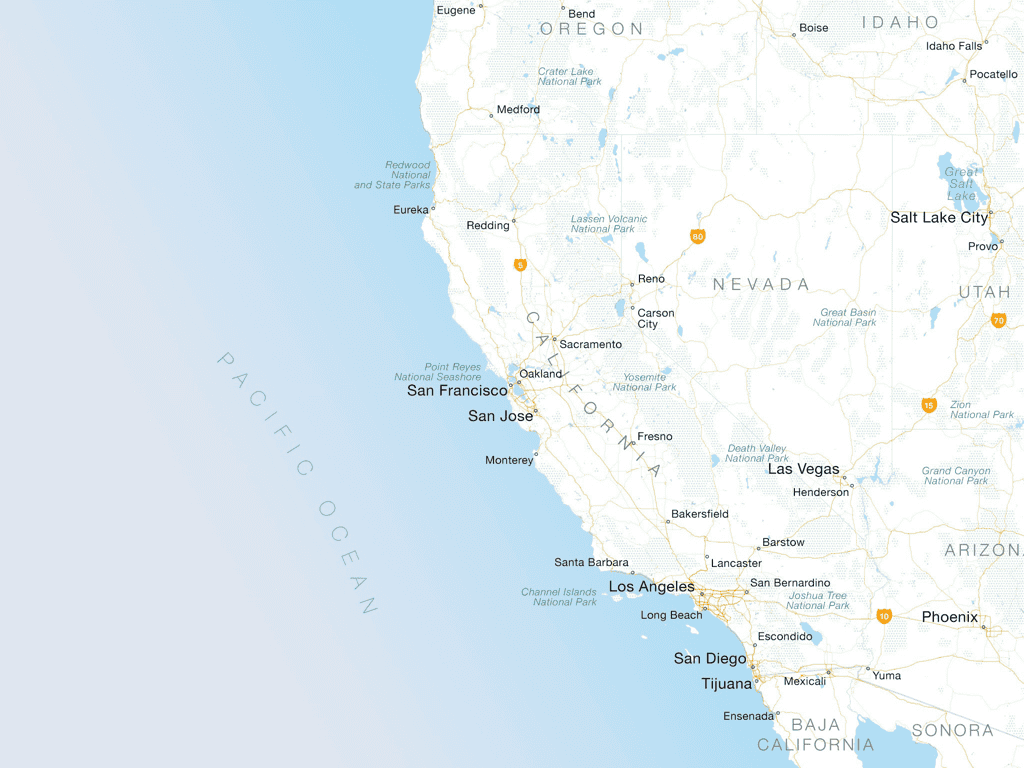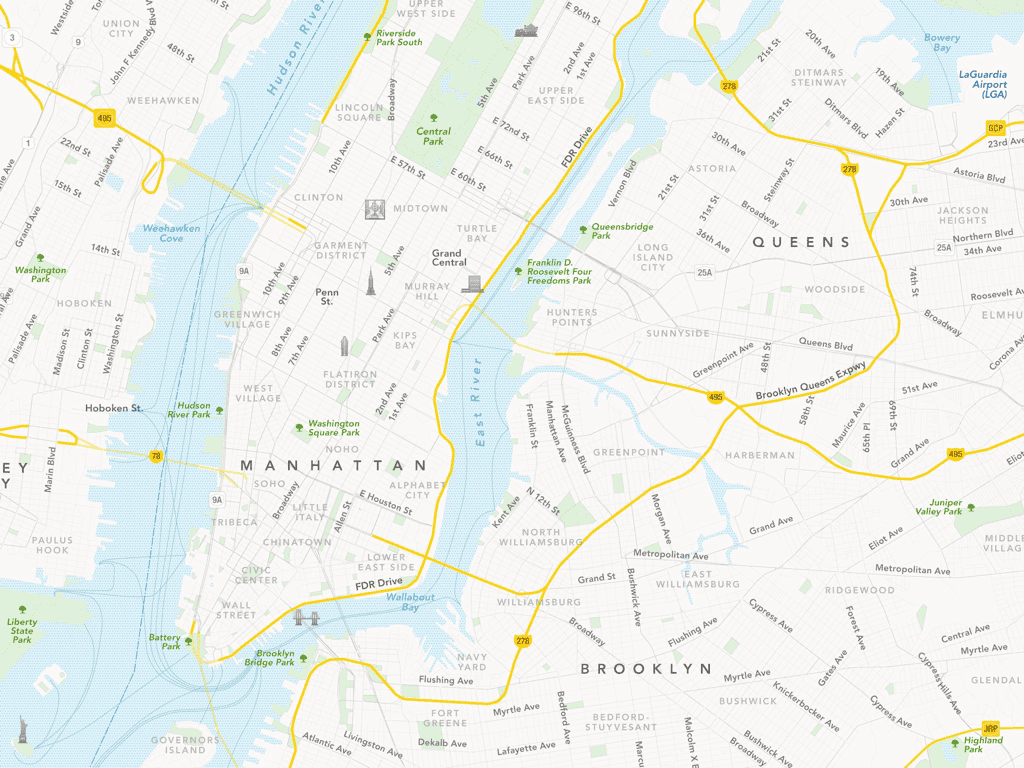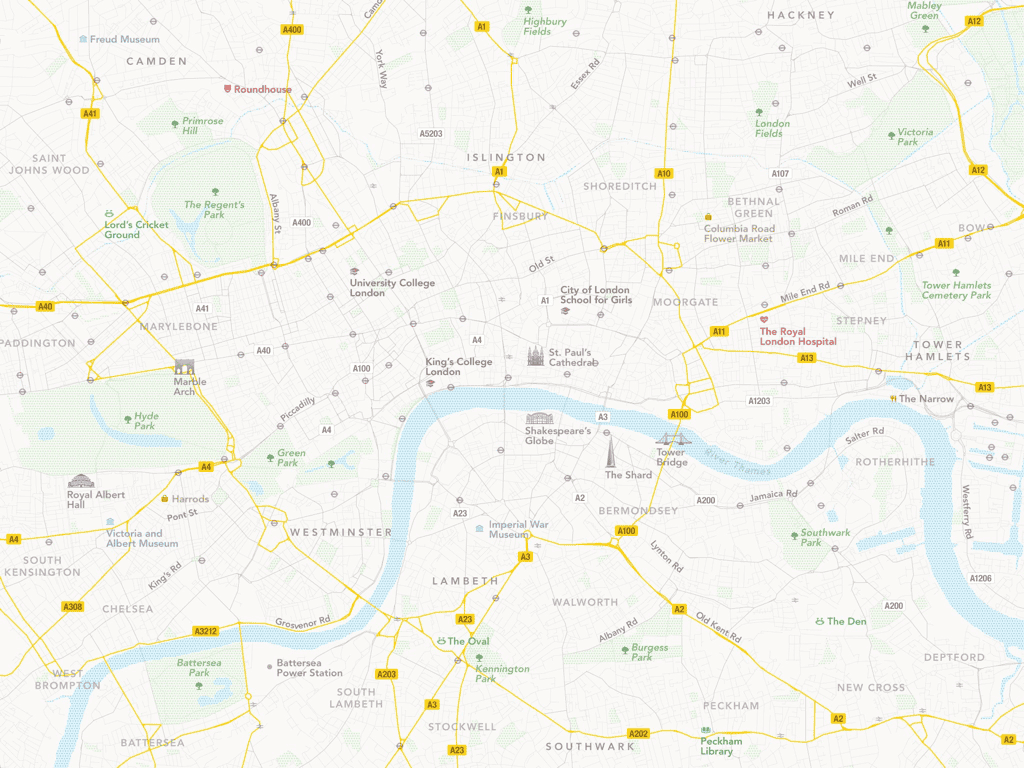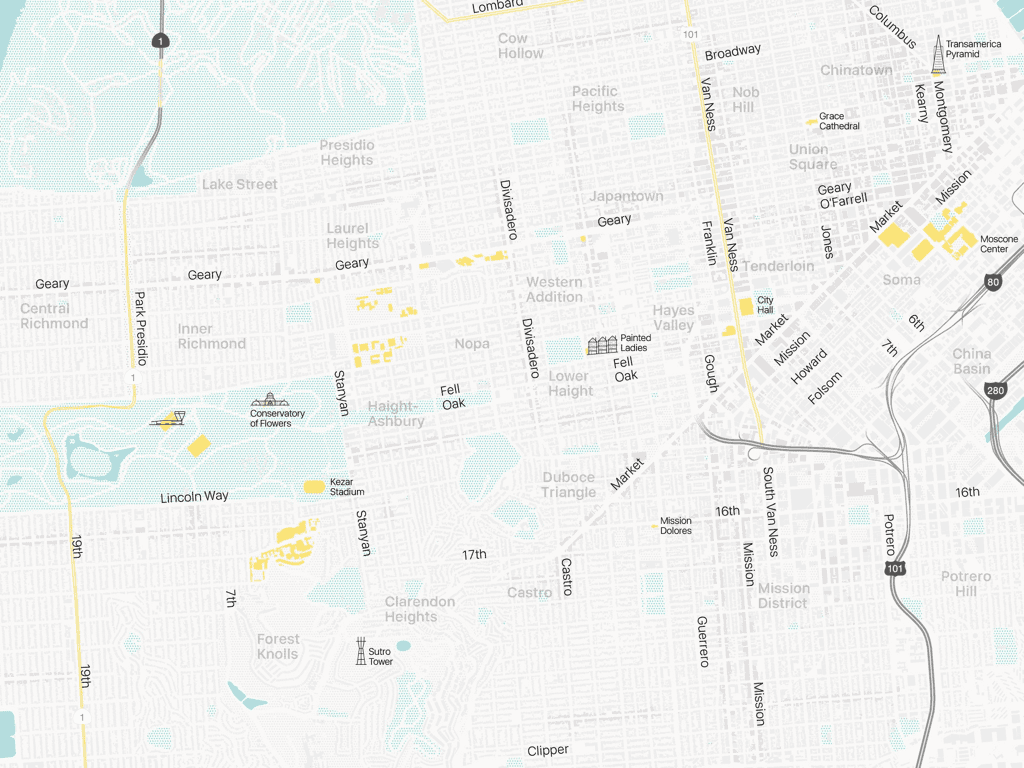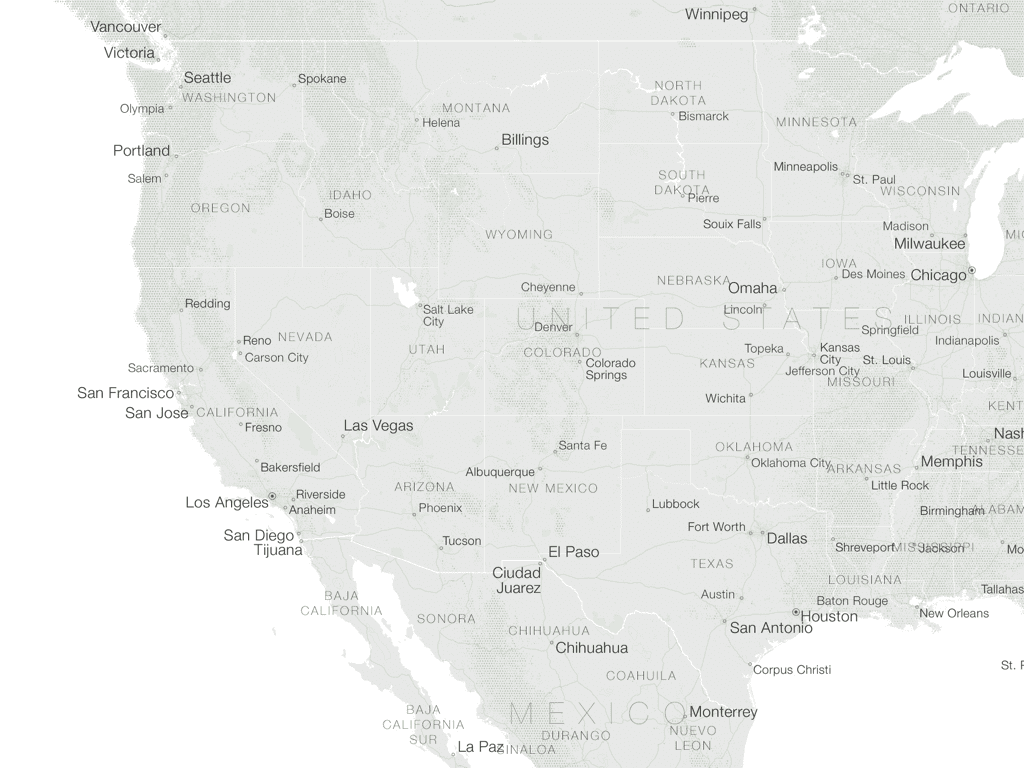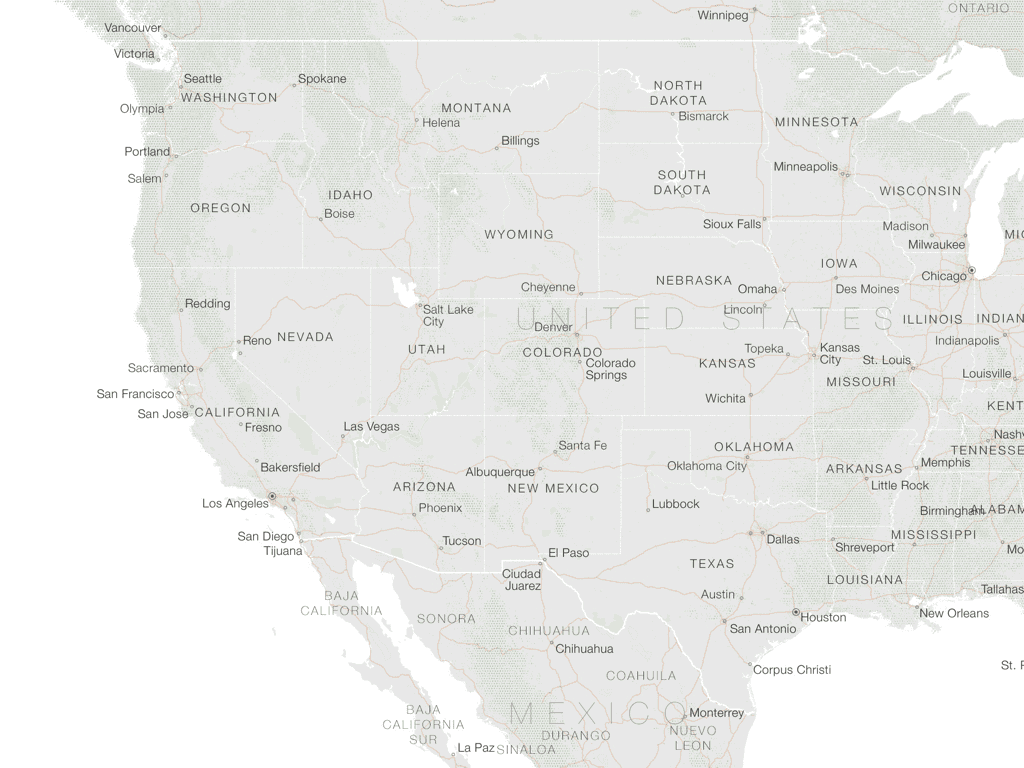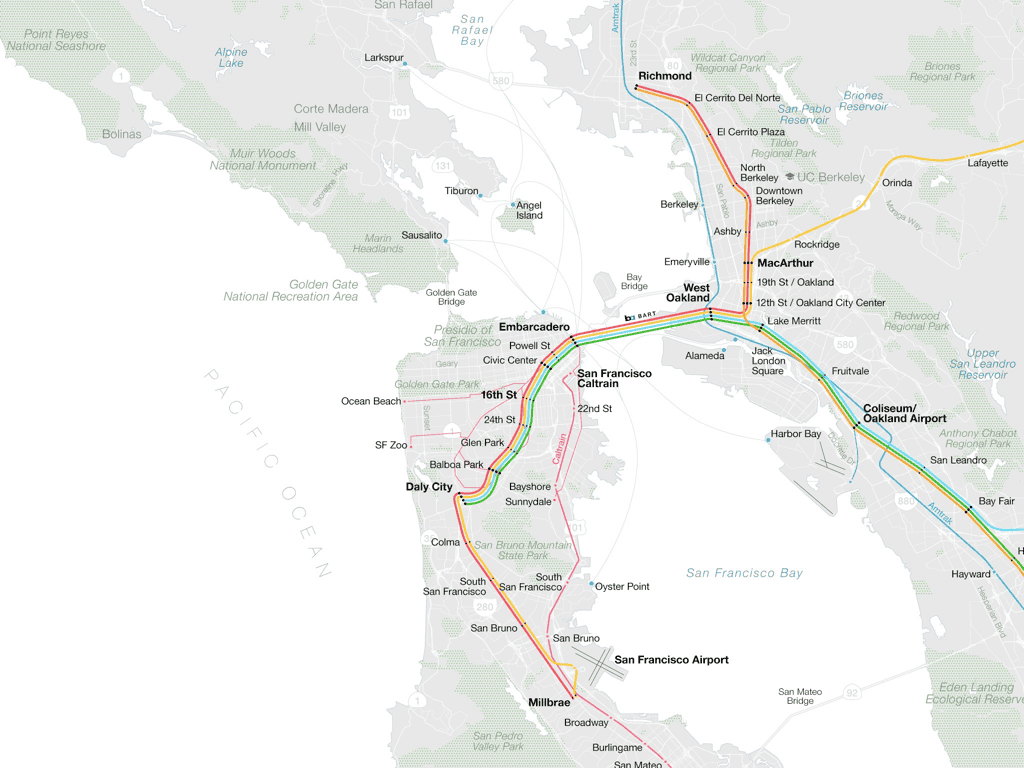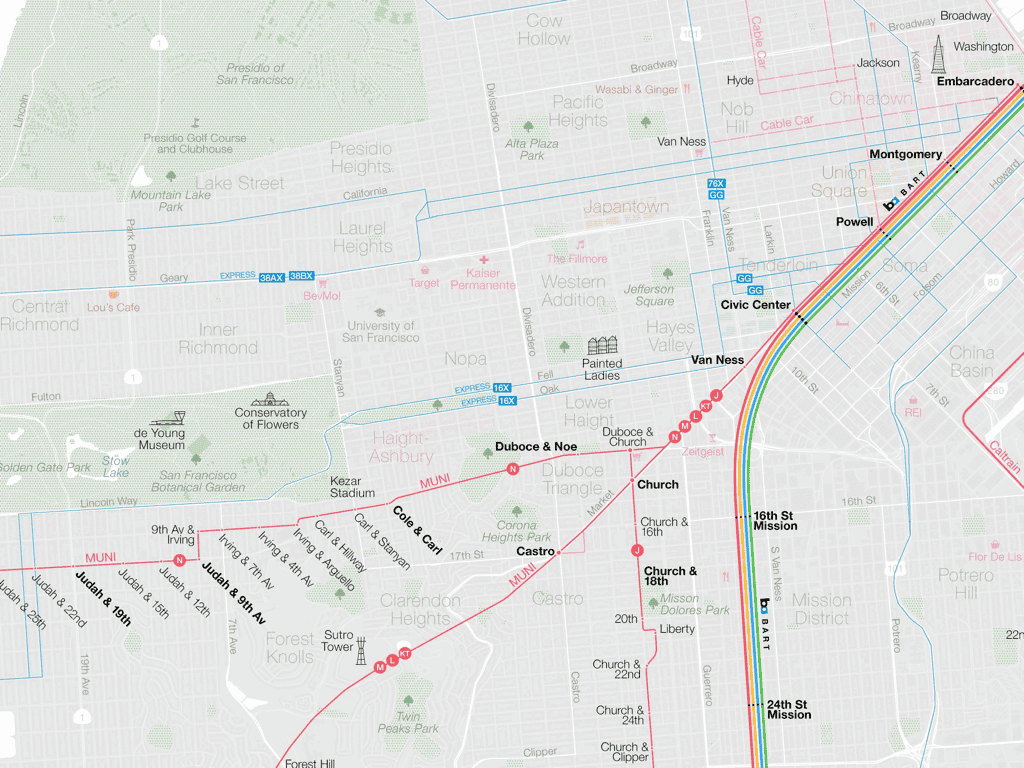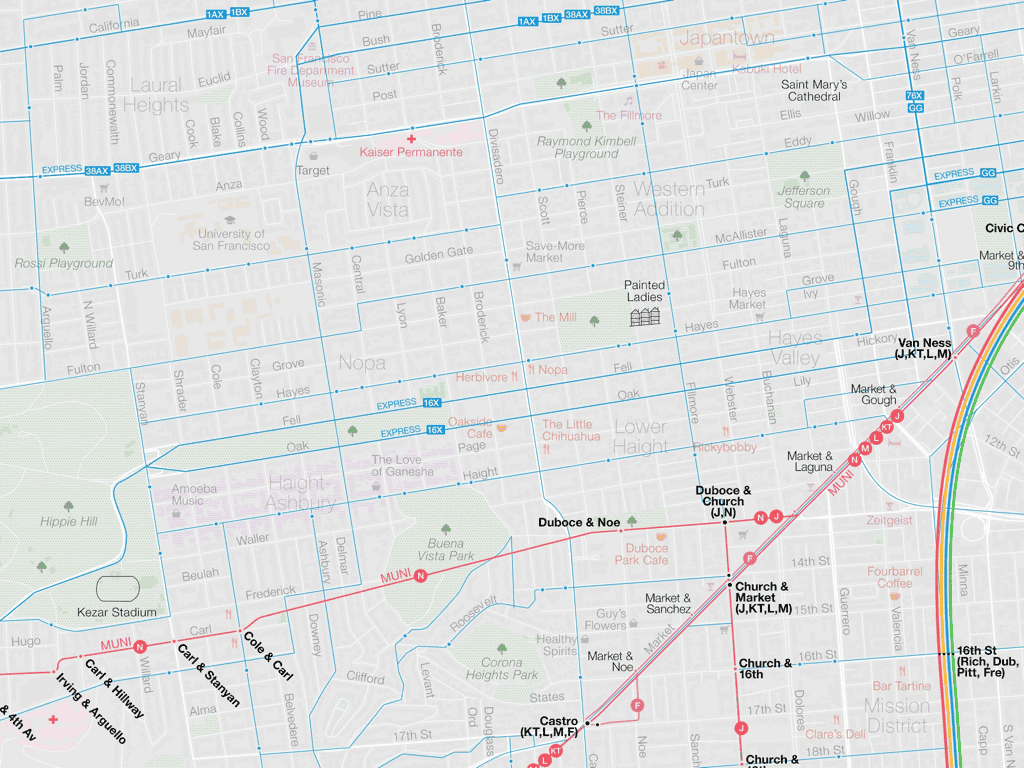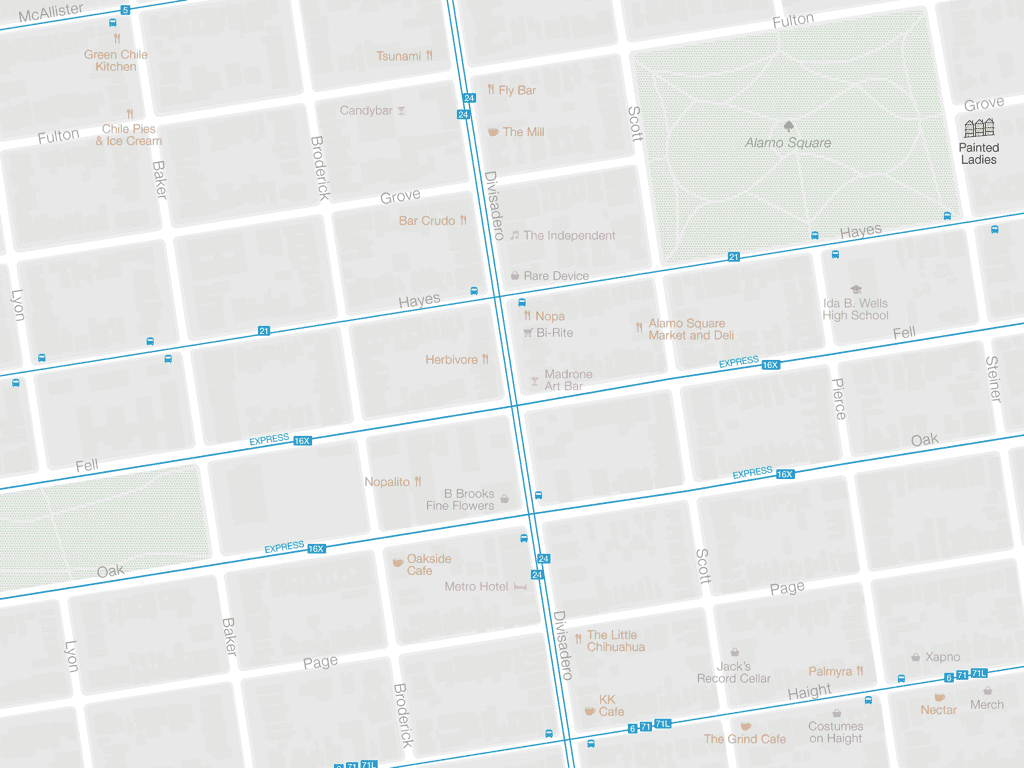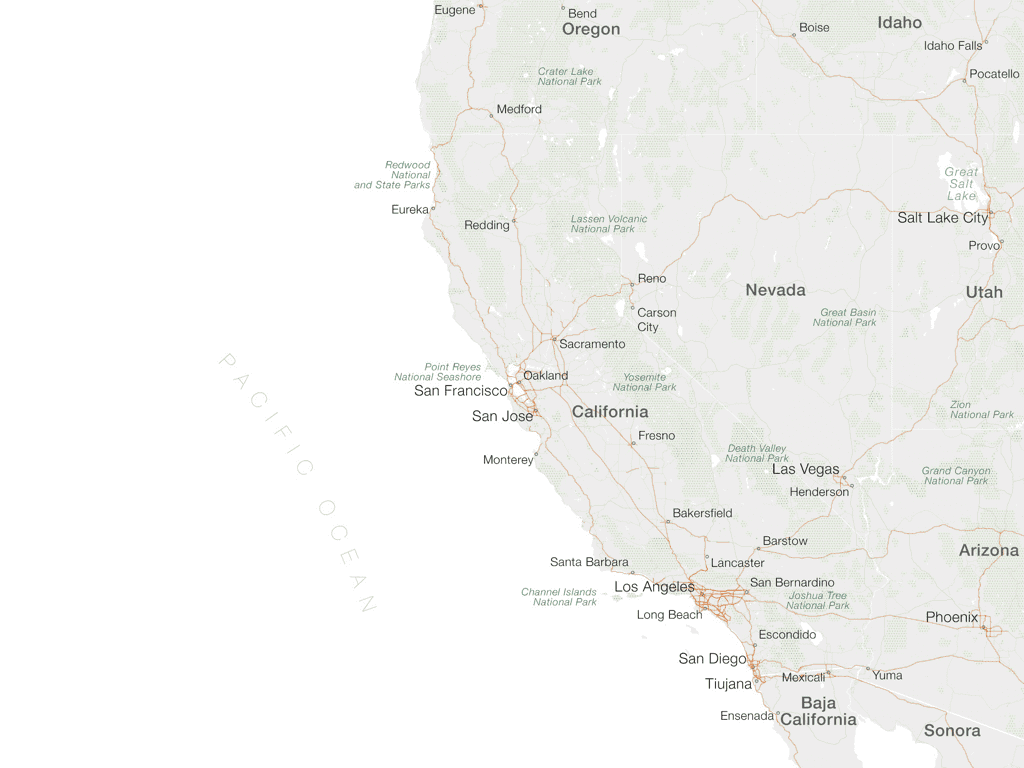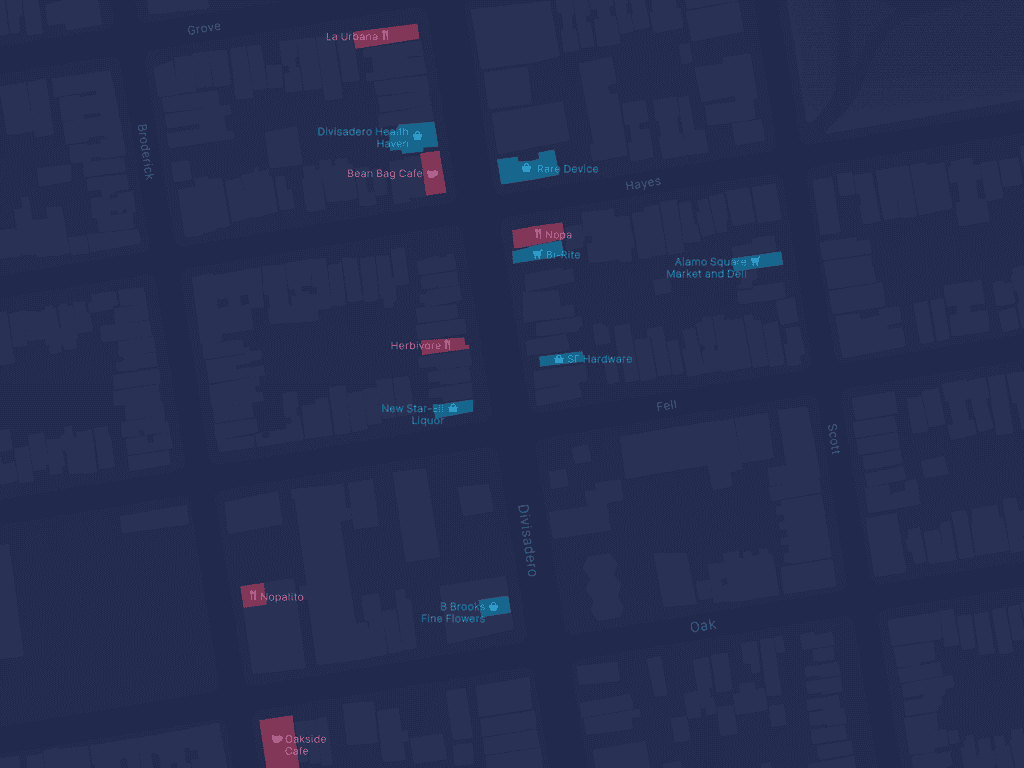Justin O’Beirne
Product & Design Portfolio
2005–Present
⚠️ This page is best viewed on desktop or tablet. Tap or click any image to enlarge. Please do not save, republish, or publicly share material from this page.
🚧 Page under construction (as of August 2025)
Contents
Snap · Tesla · Uber · Apple · Early Client Work
Projects are listed in reverse chronological order. Note: Most of my work between 2016 and 2021 remains under NDA and has been omitted from this page.
Snap, 2021–2024
Summary: I helped rebuild Snapchat’s Snap Map (400M+ MAUs within a Top 10 global app) from an unprofitable experiment reliant on third-party software into a fully in-house, monetizable platform—averting a $1B acquisition, doubling engagement, and unlocking first-of-its-kind 3D personalization and social features.
Roles: Technical Program Manager; Design Manager; Manager of Snap Map Program Team
Background: In early 2021, I was recruited to Snap by a former direct report from Apple with a clear but urgent mission: Avert a $1B acquisition by transforming Snapchat’s Snap Map—a money-losing experiment reliant on third-party software (Mapbox)—into a first-party platform capable of supporting new features and generating revenue. And do it without any loss in user engagement, as mandated by the CEO.
The challenge wasn’t just technical—it was strategic, cultural, and existential. And it had already been attempted (and failed) just a few years earlier.
The first step was to rebuild Snap Map as a fully in-house platform:
Next, we redesigned the map to make room for new features, such as personalized places (“Top Picks”, “Popular with Friends”, “Favorited Places”):
With a solid foundation in place, new features were able to built on top of the new platform, including custom user homes on the map:
And promoted 3D models for monetization:
Tesla, 2016
Summary: In 2016, Tesla asked me to imagine what navigation might look like in the age of autonomous vehicles. The full case study can be found here. (Shared with permission.)
Role: Design Consultant
I have since continued to evolve the design:
Experimental Map Designs, 2015–2016
Summary: A series of map design explorations. (Shared with permission.)
Uber, 2015
Summary: I helped build Uber’s in-house maps and routing platform (150M+ MAUs), powering the global rider and driver experience and reducing dependence on Google during a critical inflection point. I also founded the Maps Design team and made the first hires.
Role: Head of Cartography & Design, Logitics & Mapping Team
Note: Official HR title was “Senior Software Engineer”—used to expedite hiring a design role into Uber’s engineering org during a high-growth period. Functioned as and was referred to internally as Head of Cartography & Design within the Logistics & Mapping org.
Background: In 2015, I was recruited by several former Apple colleagues to help rapidly jumpstart Uber’s internal mapping efforts amid rising tensions with Google over autonomous vehicle technology and talent.
At the time, Google Maps powered Uber’s global rider and driver apps—but leadership feared access could be revoked at any moment. The project was a top-priority, high-visibility initiative with direct implications for business continuity, strategic independence, and the valuation of what was then the world’s most valuable startup.
The first versions of Uber’s in-house maps and routing platform (150M+ MAUs as of 2025) are pictured below:
Note: Official HR title was “Senior Software Engineer”—used to expedite hiring a design role into Uber’s engineering org during a high-growth period. Functioned as and was referred to internally as Head of Cartography & Design within the Logistics & Mapping org.
At the time, Google Maps powered Uber’s global rider and driver apps—but leadership feared access could be revoked at any moment. The project was a top-priority, high-visibility initiative with direct implications for business continuity, strategic independence, and the valuation of what was then the world’s most valuable startup.
The first versions of Uber’s in-house maps and routing platform (150M+ MAUs as of 2025) are pictured below:



